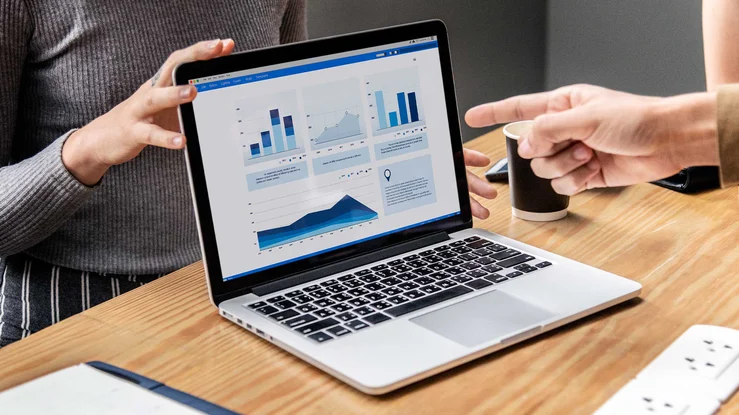Picture this: A guest visits your hotel’s website, eager to book directly. They search for rooms, compare options and finally click “Book Now.” But the booking engine stalls. Or the payment options don’t meet their needs. Frustrated, they abandon the process and head to an OTA.
This isn’t an isolated incident – it’s a systemic issue plaguing the industry.
Hotels, large and small, are trapped in what experts call the Tech Fragmentation Trap – a tangle of outdated, disparate and poorly integrated systems. The result? Poor user experience, limited personalization and missed opportunities for direct bookings.
This pressing challenge underscores the urgency for innovative strategies and tools to streamline operations and enhance guest engagement – a focus at the heart of the latest h2c Direct Booking Acceleration Study 2024.
Let’s dive into the findings of the study and uncover actionable solutions.
The State of Direct Bookings
There’s good news and bad news.
Good news: Direct bookings are improving. Since 2019, internet booking engine (IBE) bookings have grown by 2%, now accounting for 21% of total bookings. OTA shares have stabilized at 36%, and offline bookings are steadily declining.
Bad news: The pandemic-driven surge in direct bookings has leveled off. Many hotels still rely heavily on OTAs, and fragmented tech systems are holding them back.
Hotels with modern tech stacks are outperforming competitors. But for many, a patchwork of outdated systems creates friction at every stage of the booking journey.
The Invisible Chain: Tech Fragmentation’s Toll on Hotels
The Invisible Chain of fragmented systems impacts more than just the booking process. It leads to:
– Friction in the booking journey – Guests face clunky interfaces and limited payment options.
– Limited personalization – Without unified data, hotels can’t tailor offers or upsell effectively.
– Low conversion rates – Frustrated guests abandon bookings or turn to OTAs.
This fragmented approach not only damages guest experiences but also erodes profitability. Competing with tech-savvy OTAs like Booking.com requires robust systems and cohesive strategies.
The Path Forward: Strategic Tech Upgrades
Hotels can’t simply rip and replace entire systems overnight. Instead, they should prioritize three key areas:
1. Integration
Hotels must first map out their current tech stack and identify integration gaps. Data flow between systems – IBE, CRM and PMS – should be seamless. For instance:
– A guest who books a spa package online should see tailored room upgrade offers.
– Loyalty data should inform personalized pricing strategies.
2. Clean, Centralized Data
Your CRM is only as good as the data it holds. Regular data cleansing and alignment across departments are non-negotiable. Hotels that centralize their data – from spa to F&B – can unlock richer insights and drive guest loyalty.
3. Optimized Booking Engines
Many hotels reported dissatisfaction with their booking engines. Issues include:
– Limited upselling functionalities.
– Poor reporting tools.
– Unsupported payment methods.
Enhancing booking engines doesn’t always require a full overhaul. Incremental upgrades – like improving design flow or adding localized payment options – can yield immediate benefits.
Aligning Teams for Success
Technology alone isn’t enough. Misaligned goals across revenue, sales and marketing teams can undermine even the best systems.
A unified mission – supported by clear KPIs – ensures every department works toward the same goal. Regular communication and cross-department collaboration are critical to avoid operational bottlenecks.
The Role of AI in Direct Bookings
Artificial Intelligence (AI) isn’t just a buzzword – it’s transforming the direct booking landscape. Here’s how:
– Personalization: Tailored room recommendations based on past stays or preferences.
– Dynamic pricing: Predictive analytics to optimize rates in real-time.
– AI-powered chatbots: Real-time assistance to answer guest queries and resolve issues.
According to the study, AI adoption in IBEs is set to double within two years. The highest growth area? Personalized booking features, with over half of hotels planning to invest in this capability.
Actionable Steps for Hoteliers
Improving direct bookings isn’t a one-size-fits-all strategy, but these steps can make a big impact:
1. Enhance Your IBE
Focus on personalization, upselling and seamless user experiences. Incremental updates to your booking engine can dramatically improve conversion rates.
2. Clean Up Your CRM
A cluttered CRM is a liability. Regularly audit and cleanse data to ensure it’s accurate, actionable and aligned across all departments.
3. Prioritize Integration
Invest in connecting systems to eliminate data silos. Ensure data flows smoothly between your PMS, CRS and other platforms.
4. Leverage AI
Incorporate AI tools to analyze guest preferences, optimize pricing and provide real-time support. AI isn’t the future – it’s the present.
5. Align Teams Around Clear KPIs
Define and communicate shared goals across departments. When teams are aligned, technology adoption and strategy execution become seamless.
Don’t Panic. Start Small.
Improving your direct booking strategy doesn’t require a massive overhaul overnight. Start with small, impactful changes and build momentum.
Remember, this isn’t just about technology – it’s about creating a cohesive, guest-centric experience.
The next step is yours.
Evaluate your systems. Align your teams. And commit to building a tech stack that drives results.
Your guests – and your bottom line – will thank you.



